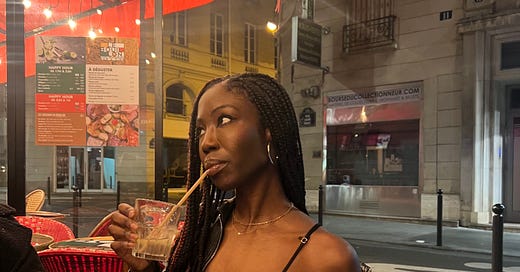Learning French with Ama Kwarteng
Welcome to Thinking About Getting Into: a newsletter about interesting people with interests.
Today, I’m talking to Ama Kwarteng about learning French! Ama is the beauty director at Coveteur and a writer based in Brooklyn—though she takes advantage of any opportunity to go to Paris. When I learned about Ama’s French lessons, I immediately redownloaded Duolingo and got back on my own rather inefficient attempt to become a polyglot. But after this conversation, I walked away with a few more practical pieces of advice and plenty of inspiration to push me ahead on my own language-learning journey (anyone have any Spanish tutor recs?)
So what’s your history with French? Did you start by taking it in middle or high school? What led you to the language?
I have always had an infatuation with the French language and French culture in general. I don't necessarily know where that stems from. I was always obsessed with fashion growing up, so I'm sure that played a part in it. I took French in high school and then I took it for three semesters in college. When I studied abroad, I decided to go to Prague instead of Paris because I was like, “When will I ever have a chance to go to Prague?” I figured I'd probably be able to go to Paris time and time again.
I never had a real grasp of the language—that’s a goal that I've always wanted to accomplish: To be able to read books in French and be able to have conversations about literature in French. A lot of my favorite authors are originally written in French and I wanted to be able to read them in their original language. So in January of this year, I started meeting with a tutor once a week. That has helped so much in terms of having personalized one-to-one interaction and getting over the stage fright of speaking French. When you're not a native speaker, you mess up all the time. That's just a part of the learning process.
I found that in every other aspect of my life, I like to have a great sense of control, which is something that I'm working on—but when you’re learning another language, you don't have control and you have to realize messing up and failing is all part of the process. You have to realize that there is no end goal, really—you're never going to be completely fluent. Think about English: There are new turns of phrase and new slang that we learn every day, even as native speakers.
When did you first go to Paris and what was that experience like?
I went to visit one of my friends who was studying abroad there. And it was amazing. It lived up to every expectation I had. That trope that Parisians are mean? I didn’t find that to be true. I loved how walkable the city was. And I love how you can just go and sit at a cafe and drink a glass of wine for three euros. My idea of a luxurious life is about having a lot of time to enjoy the small things—being able to sit at a cafe and drink a cheap, but still really good glass of wine, and be around friends. That's peak luxury to me.
This is corny, but every time I go to Paris, it feels like home—it’s the way I felt about New York when I first moved here. There's such a sense of freedom, like I could just walk around and not necessarily have any place to go.
There is this sense of not being rushed as much as you are in New York, especially in the restaurants which, of course, if you have a lot planned in your day, you can be like, “Okay, we need the check.” I feel like there aren't as many places in New York where I can just sit and not really do anything.
No one's ever looking at you weirdly and you don't have that sense of “Oh, should I be with someone?” or “Is it weird that I'm alone?” which I feel can come up in New York. In Paris, it's not necessarily isolation, but having those moments of solitude. I feel like it's more ingrained in a way that it isn't in New York. I definitely agree with that not-being-rushed thing—people take time to have breakfast and read the newspaper in the morning and when they go to dinner with friends, it's hours long. It feels like a good release.
So you took French in high school and college—at what point did you start to really think about committing to the language and start having that desire to read and communicate in French?
I think it was actually a conversation with my therapist in 2020. She asked, “What are some of your goals?” and they couldn’t be work-related. And I was like, “Oh, people have goals that don't have to do with their career?” My mind was blown.
It's really something that I've always wanted to do. So I was like, okay, let me start looking into this and taking it more seriously. I had always tried to do self-study, but I wasn't able to hold myself accountable. Honestly, for some people, it totally works. But I need the fear of talking to someone or someone counting on me to actually really get into it.
I was in France for a month from mid-February to mid-March of this year. Before I went I was like, you know what, I want to be able to communicate and make strides towards this goal of being able to speak French and read French and listen to French music and understand French films. I was talking to a friend who finished her Master's program at Cambridge. She moved to Paris for a year, and she was like, “Oh, I'll give you the name of my French tutor.” My tutor is half French, half American, so she has a perfect accent in both French and English and really understands both cultures, which helps a lot. When you're speaking a language, it's not just words. It's also texts and cultural context, especially when you're reading, so she helps make those connections. I really started taking it more seriously January of this year when I started meeting with her once a week.
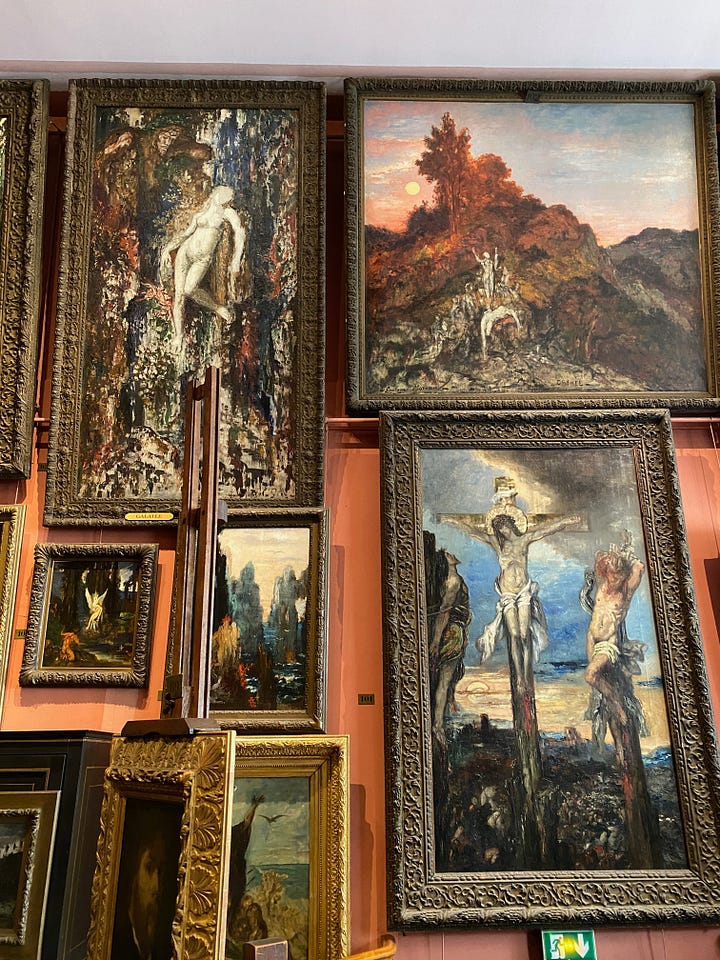
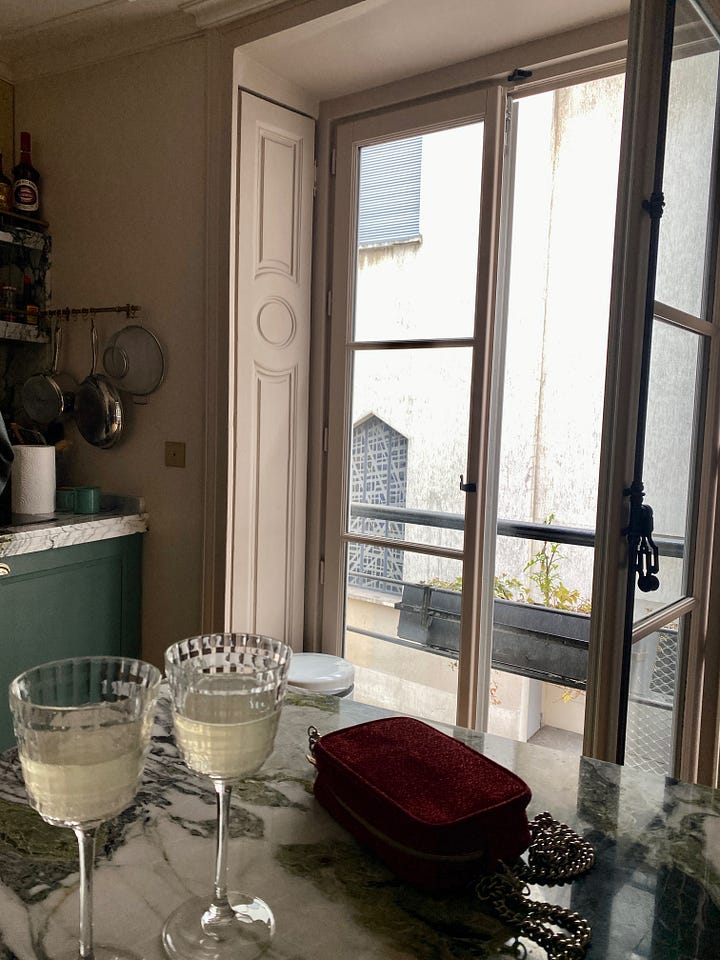
What was that month like living in Paris? What kinds of things did you do?
I apartment-swapped with my friend who had given me the tutor recommendation so she could do PhD visits in the States. I watched her cat, Wallace, and worked remotely. I was really in the mindset of doing things that make me happy and having new experiences. I want to feel like I’m dictating the terms of my life, not that life is happening to me.
I was primarily in the 11th arrondissement. There are a lot of restaurants and there's one cocktail bar called Combat that I found myself going back to again and again, in part because they took requests when it came to cocktails and also because they entertained my French. I tried to speak it as much as possible when I was interacting with French people. I was reading a lot. I write fiction, so I was experimenting with that more. Because I was working U.S. hours I had the mornings to myself. So I’d go on walks for hours and go to random bookstores and museums. One of my favorite ones that my friend recommended was Musée Gustave Moreau. When you're around amazing art you feel kind of high in a sense or overwhelmed with emotion. That's how I felt when I was there.
What French authors do you like, and when did you start getting into French literature?
I really started diving in probably 2019, 2020. One of my friends used to work at The Paris Review and they would do staff picks every Friday. One of her picks was Street of Lost Footsteps, which is by a Haitian writer, translated from French. It’s incredible, so I emailed her saying that I read the book and thanked her for the recommendation, and we ended up becoming friends. She’s really into translated literature, so that was my entryway.
One of my favorites is Annie Ernaux. Her writing is very straightforward and to the point. Her economy of words is very sparse, yet so precise. I remember reading A Girl's Story and seeing myself in so much of it. I don't really necessarily read literature to be seen, but the way that she was able to take these events and moments in her life and render them onto the page, I was like, “Whoa, this is amazing.” It made me think, what is it like in French? Translation is an art in itself. I wanted to be immersed in the original and see if the rhythm of her sentences changed. I'm really interested in the construction of sentences and sounds, and I feel like English and French are so different. So I want to be able to understand without needing a middleman in order for me to get what she's saying.
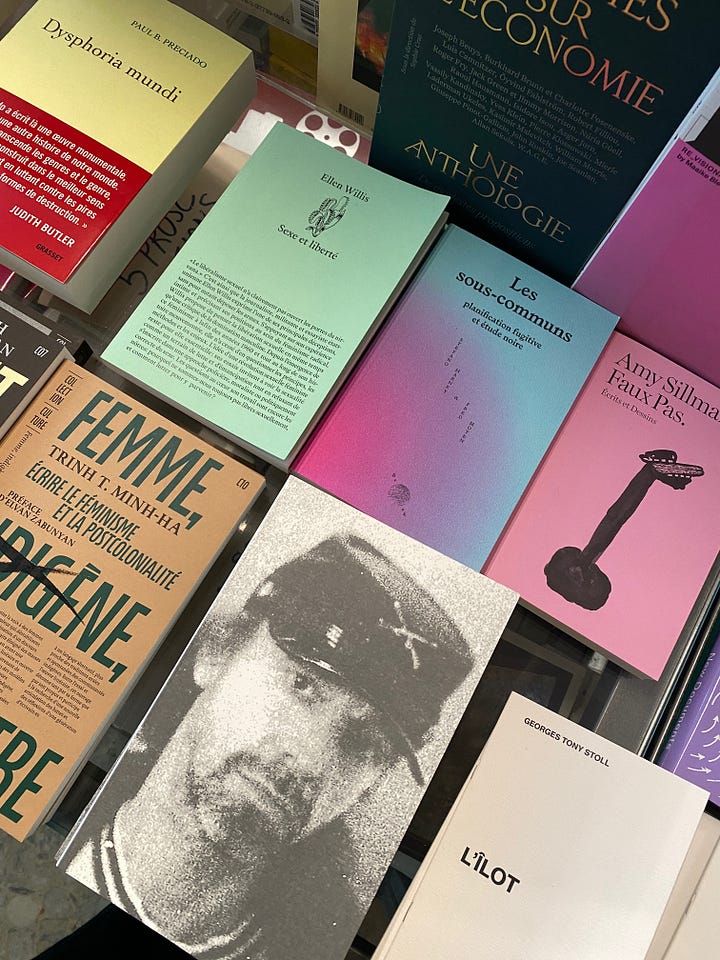
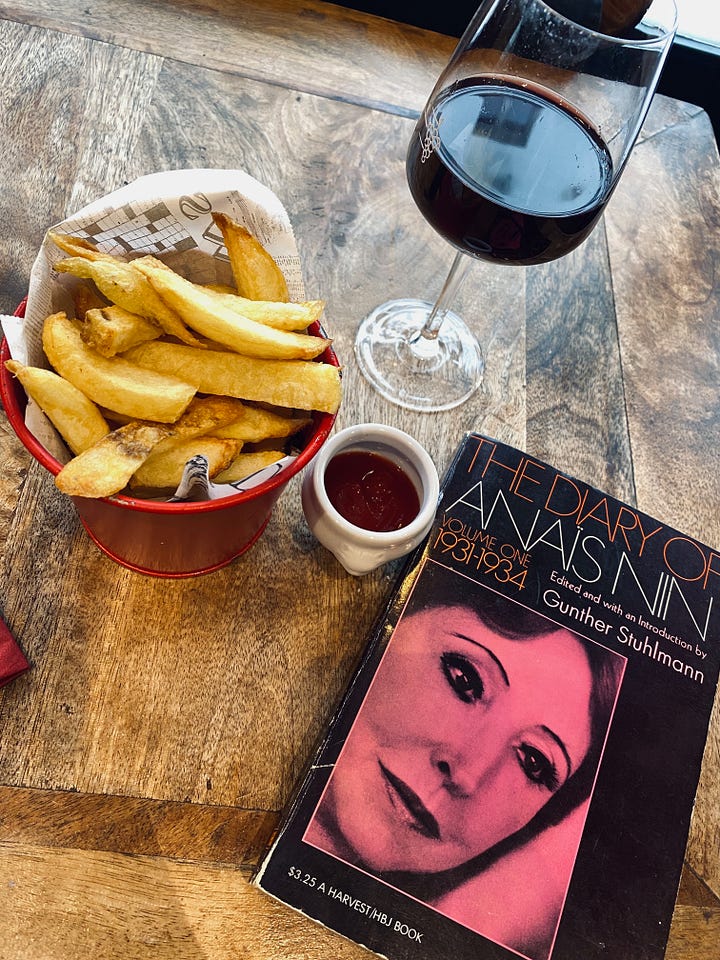
Have you read any of her work in French yet?
I have copies of her novels in French that I got when I was in Paris. I've glimpsed through them, but I haven't really started delving in. Right now I’m making my way through The Stranger by Albert Camus in French. It’s recommended for people who are new to reading in French because while the story is deep and complex, the language isn't necessarily overwhelming. I'm trying to dedicate more time to reading French novels. It's a very slow and painstaking process—kind of like a mental puzzle. It's stimulating in a way that I'm not really stimulated a lot in life anymore. Now that I'm not in school, it feels like a worthwhile challenge, which I really appreciate.
I remember you told me there was a writer who recommended other writers be able to read and write in different languages—who was that?
That was Garth Greenwell! In a podcast for the Sewanee Review he said that if he could, he’d make a foreign language a requirement for every MFA program. He was saying, the progression of literature happened because different cultures were able to meet each other and come into contact with each other. He talks a lot about how when you're only reading in English, you're limiting yourself so much and you're limiting your worldview so much. Through reading other languages, you can be aware of different ways of telling a story, different ways of writing a sentence, different ways of using language. When you're only reading in one language, you're kind of selling yourself short as a writer.
You mentioned stage fright about speaking another language, and I 100% feel that. I’m trying to get better at Spanish, and to me, speaking out loud is so scary, so ultimately I should probably get a tutor. So what was it like starting those tutoring lessons, and what’s been the most challenging part of learning French?
The first few sessions I would have a mini panic attack before I turned on my Zoom. It's so nerve-wracking, but you get used to it. Now I'm not even nervous at all, which is crazy. I’m in the intermediate stage of learning French, which I think is hard. The improvements come in such small increments that you don't even notice that you're learning a lot. When I went to Paris a few weeks ago, I was like, whoa, I understand a lot of what people are saying. That's when I realized I have made a lot of progress.
The hardest part for me, right now, is listening because French people talk so fast, and in Parisian French, the words slur from one to one another. I’m listening to as much French as I can to get my ear trained to how they speak. There are ups and downs, but it's all about consistency.
Do you ever do Duolingo or anything like that in-between lessons?
I don't do Duolingo because I found, at least in my case, it doesn't really help with the learning process. There’s this thing called Kwiziq that I use to practice French grammar. I aim for 15 to 30 minutes a day, just to get into the swing of things. I've been watching this French show Lupin on Netflix. I've been reading French poetry. In the latest issue of Poetry magazine, there are a bunch of translated poems by this woman Joyce Mansour. That's been a really cool experience. I also have a bilingual edition of poetry by Rainer Maria Rilke, and I usually start off my days reading a few poems before I look at my phone. I got into it during the pandemic and helps keep me sane.
That’s such a healthy habit!
I don't sleep with my phone in my room anymore, and I have an alarm clock. It changed my life.
I’m just trying to do little things like that. I haven't been doing this as much recently but I would watch French beauty YouTubers a lot at 0.7 speed. That's also fun because then it's talking about something that I'm interested in. Moving forward, I want most of my time to be spent on grammar and then working on novels and poetry. You want to find a way to naturally immerse it into your life without it feeling like homework.
What would you tell people who are thinking about getting into French?
This is so cliché, but be comfortable with being uncomfortable. It's supposed to be fun, you're not going to be perfect, and that's okay. It's going to be slow. It's going to feel penetrable for a while, but I think it's so worth it. You have this sense of freedom because you're able to make mistakes and no one expects you to be perfect, which may not be the case in other areas of your life. I love it.
I've been writing a little bit in French. And it's very beginner, very primitive, because there's so much vocabulary I don't know. When I'm writing, I'm just trying to be understood. Especially if you're a creative writer, it can help you get down to the essence of what you're actually trying to say. ▲
What I’m thinking about getting into:
French films: Clearly I am also on the French (new) wave! I recently watched quite a few French movies that I really enjoyed—Breathless, Purple Noon, and Contempt. It’s a Criterion girl summer. Add me on Letterboxd.
The crossword: All I have to say is the New York mag’s is so much harder than The New Yorker’s and FOR WHAT???
Baking, maybe: Thinking about resurrecting my sourdough starter (obviously I was one of those people in 2020) to make this sourdough focaccia, which I have made before and greatly enjoyed.

